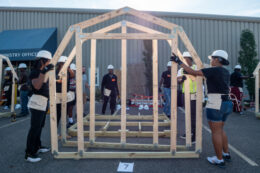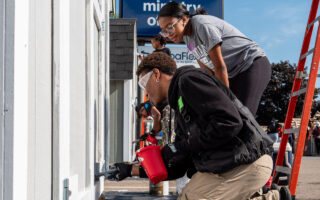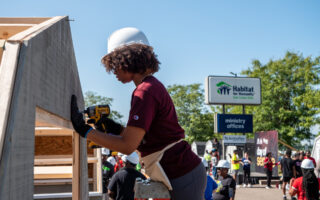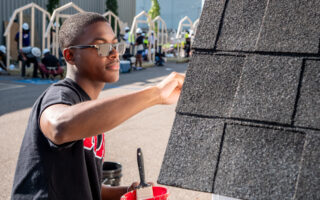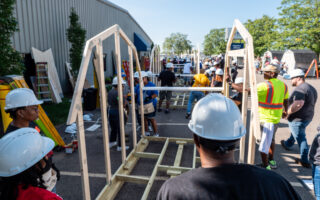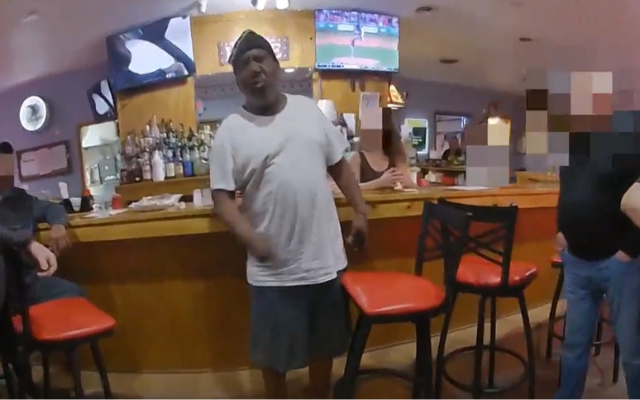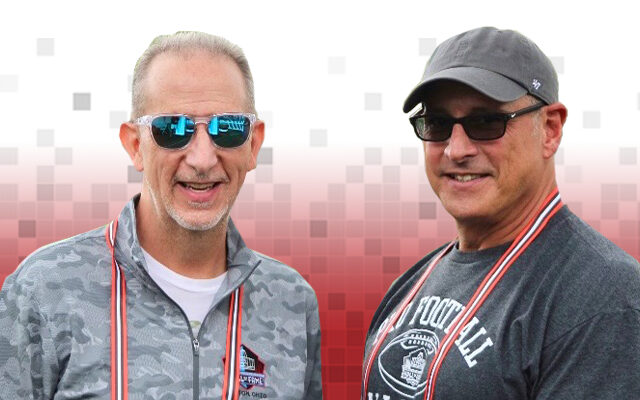Habitat for Humanity Brings some Extra to its Homes with the Pro Football HOF
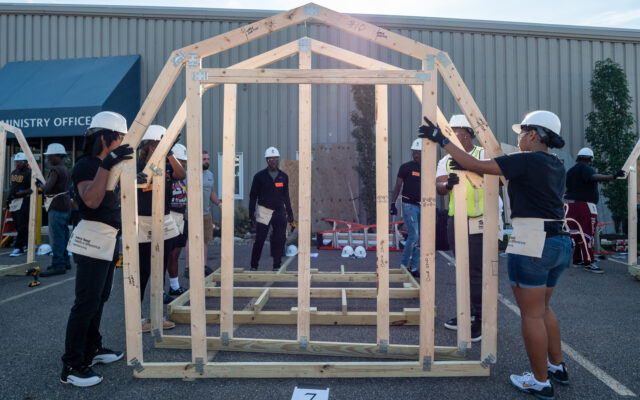
SEE PHOTO GALLERY BELOW
— Habitat for Humanity East Central Ohio is gathering nearly 100 volunteers from across the country to construct 15 garden sheds that will accompany 15 new Habitat homes.
This event is held in partnership with the Pro Football Hall of Fame as part of the Black College Football Hall of Fame Classic’s Community Day activities and was held outdoors at Habitat’s ministry offices on Raff Road SW, Canton. Beth Lechner, CEO of Habitat for Humanity East Central Ohio, expressed her enthusiasm for the collaborative endeavor: “In the game of football, every yard gained is a team effort, and the same holds true for building strong communities. Today, as we partner with the Pro Football Hall of Fame, we’re not just hammering nails into wood; we’re forging long-lasting relationships and building a future where everyone has a decent place to live. This is community teamwork at its best.”
Building More than Just Sheds
This Community Day event serves as a platform for people from diverse walks of life to come together in the spirit of unity and service to others. By constructing these garden sheds together, volunteers are highlighting Habitat for Humanity’s transformative mission of not merely building houses, but creating lifelong homes that anchor families in
affordable, stable environments. This day of service is also about building a sense of community ownership and collaborative efforts that leave a lasting impact well beyond the walls of sheds and houses. “This is about legacy and housing intertwined,” added Lechner. “Our partnership with the Pro Football Hall of Fame and the Black College Football Hall of Fame pays tribute not just to the enduring contributions of inspirational Black college athletes, but also to the pivotal role that Historically Black Colleges
and Universities play in shaping leaders and community builders. It’s a celebration of the long-lasting impact that both
stable housing and the legacy of HBCUs can have on a community.”

